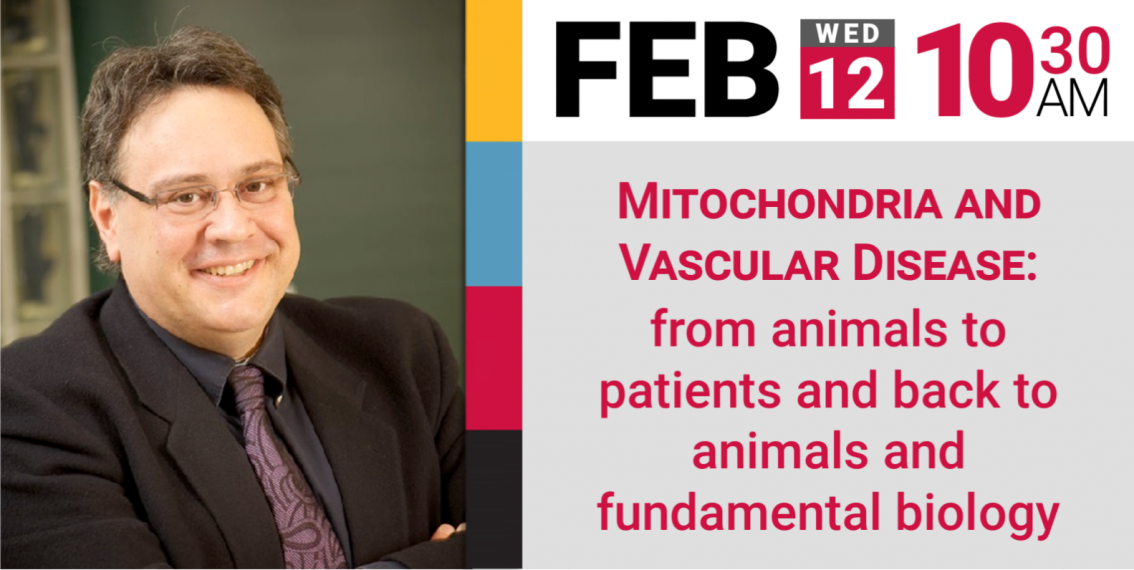SSC 2315

Dear Colleagues,
Please join us as we welcome Dr. Evangelos Michelakis as part of MCB's Distinguished Speaker Series on Wednesday, February 12th, 2020.
Seminar time: 10:30 - 11:30 AM
Room: SSC 2315
All are welcome to attend. Please see poster for further details.
Sincerely,
MCB Distinguished Speaker Seminar Committee
Title:
Mitochondria and Vascular Disease: from animals to patients and back to animals and fundamental biology
Abstract:
Dr Michelakis will describe the Metabolic Theory for Pulmonary Arterial Hypertension (PAH) and discuss how a mitochondrial suppression can potentially explain many (if not all) features of clinical PAH. He will summarize the findings of a recently completed clinical trial of a mitochondria-activating drug in PAH patients (Science Translational Medicine, 2017). In that trial, while the drug (Dichloroacetate, DCA) showed a statistically significant benefit to the whole group, ~40% of patients were not responsive. This resistance was associated with the presence of two loss-of-function gene variants (SNPs) of two critical mitochondrial enzymes, that are also present in patients with metabolic syndrome. He will present unpublished data showing that a novel transgenic mouse model that he just created, lacking both of these genes, exhibits very severe PAH at a very young age and is also resistant to DCA. These mice develop severe plexiform lesions as well, being perhaps the first mouse model that exhibits these important lesions at a young age and in significant numbers. Dr Michelakis showed in cancer cells that mitochondrial pyruvate dehydrogenase complex (PDC) can translocate to the nucleus, without its inhibitory pyruvate dehydrogenase kinase (PDK, the target of DCA) (Cell, 2014). This makes nuclear PDC resistant to DCA. Vascular cells from these transgenic mice also show nuclear translocation of PDC (a first in vascular biology) forming the basis of a biomarker discovery program for resistance to metabolic modulators and precision medicine-based clinical trials. He will also discuss novel mechanisms for the translocation of this large enzyme to the nucleus, via a non-canonical, novel pathway.
Dr. Evangelos Michelakis Canada Research Chair Profile Page [1]